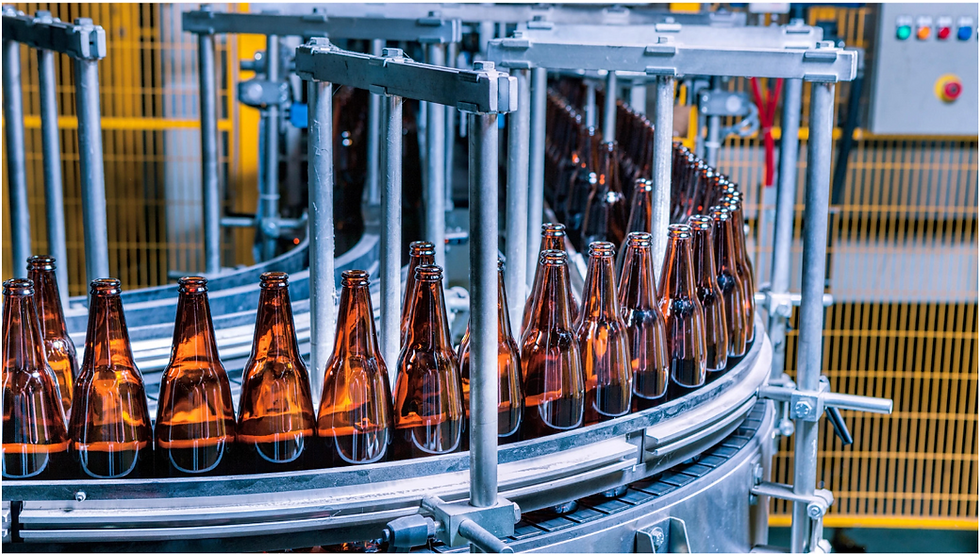Plastic vs Glass Bottled Drinking Water - The Environmental Impact
- Ngọc Diệp Nguyễn
- Jul 6, 2023
- 2 min read

Water is essential for our survival, and with the growing awareness of the importance of hydration, the consumption of bottled water has skyrocketed in recent years. However, the choice between plastic and glass bottles has raised concerns about their environmental impact. In this blog post, we will delve into the environmental implications of plastic and glass bottled drinking water to help you make an informed decision.
Production Process
Plastic bottles are typically made from petroleum-based materials, such as polyethylene terephthalate (PET). The extraction and processing of petroleum contribute to air and water pollution, as well as greenhouse gas emissions. On the other hand, glass bottles are produced by melting sand, soda ash, and limestone at high temperatures. While glass production requires significant energy inputs, it is generally considered less harmful to the environment compared to plastic.
Recycling
Plastic bottles are notorious for their low recycling rates. Only a fraction of plastic bottles end up being recycled, while the majority are either incinerated, littered, or sent to landfills. The recycling process itself consumes energy and water, and improper disposal can result in plastic pollution that harms wildlife and ecosystems. Glass bottles, on the other hand, have a higher recycling rate and can be recycled indefinitely without any loss in quality. This makes glass a more sustainable option.
Durability And Reusability
Plastic bottles are lightweight and less fragile than glass, which makes them convenient for transportation and reduces the risk of breakage. However, plastic is prone to degradation and can release harmful chemicals into the water over time. Glass bottles, although heavier and more prone to breakage, do not leach any chemicals into the water and can be reused many times before recycling. Reusable glass bottles are a better choice for reducing waste and minimizing potential health risks.

In conclusion, when considering the environmental impact of bottled drinking water, glass bottles emerge as the more sustainable choice. While plastic bottles offer convenience and durability, their low recycling rates, harmful chemical leaching, and contribution to plastic pollution make them an environmental concern. Glass bottles, with their higher recycling rates, minimal leaching, and lower carbon footprint, are a better option for those concerned about the environment.
Ultimately, reducing the consumption of bottled water altogether by opting for reusable alternatives, such as stainless steel or filtered tap water, is the most eco-friendly choice. By making conscious decisions about the containers we use, we can contribute to a cleaner and healthier planet for future generations.





Comments